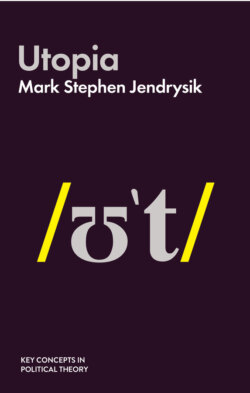Читать книгу Utopia - Mark Stephen Jendrysik - Страница 12
Utopia and Politics
ОглавлениеUtopian thought is political. Utopian thought attempts to solve political, social and economic problems. Sometimes this can mean reaching toward an ideal state. Sometimes it can be tethered to current societal conditions and, “by showing how the social world may realize the features of a realistic Utopia, political philosophy provides a long-term goal of political endeavor, and in working toward it gives meaning to what we can do today” (Rawls 2001: 128). Utopian thought is not merely some sort of academic exercise. The great utopian thinkers were politically aware and active men and women. They often risked their lives, livelihoods and reputations to advance the dream of a better world.
Utopia is that part of political thought that sees beyond what is to what could be or, more importantly, what should be. While a realized utopia might seem to have transcended politics, the path to utopia, both in theory and in practice, must negotiate the realities of human interaction, of power and planning, of ruling and being ruled. As Jameson says: “politics is always with us, and is always historical, always in the process of changing, of evolving, of disintegrating and deteriorating” (2004: 44).
But utopian thought can also be anti-political. Some utopian thinking is “based on a desire for the death of politics and the end of history” (Firth 2012: 14). Many utopian theorists sought and perhaps still seek what Thomas Hobbes called a “Nunc stans” – a final end point that renders politics, and perhaps even change, unnecessary. Utopia might begin with politics, but utopia seems to seek the end of politics. From Plato to Marx to Bellamy and beyond, utopian thought understands politics as an impediment to attaining justice and equality. A fully realized utopia renders politics unnecessary. As Alan Ryan says, “Plato’s Republic and More’s Utopia paint elaborate pictures of life in utopia but share with Marx the presumption that in the absence of conflicts of material interest, administration will be necessary, but politics will not” (2012: 771, original emphasis). Any examination of utopian political thought must address the clear tension between politics and anti-politics.
Jameson says that “utopia is either too political or not political enough.” He claims that “in utopia politics is supposed to be over, along with History, Factionalism, parties, subgroups, special interests … the one thing that cannot be challenged or changed is the system itself.” But, and perhaps paradoxically, utopias often feature “eternal squabbling and bickering … never ending debates and discussions … interminable airing of differences” (2004: 42–3). Utopian thought is hyperpolitical and anti-political. This is not a particularly original observation, but it is one that should always be kept in mind. Le Guin’s The Dispossessed focuses attention on this paradox. Anarres is at once anarchist and organized, lacking an “official” political structure but riven by power struggles. No space can be walled off and declared free of conflict. Unless a utopia is a benevolent dictatorship, such as Plato’s Callipolis (“beautiful city”) in Republic, or, like More’s Utopia, it takes extreme measures to ensure that political debate is curtailed, there will be discussion and disagreement about its management. The expectation of most utopian authors seems to be that the inherent goodness of the community will be self-evident to its citizens. This will serve to limit contestation to relatively minor matters or technical questions of administration. But Jameson’s main point is clearly correct: we should expect that utopian politics will narrow and become focused on administration while simultaneously insinuating itself into all aspects of life.
Whether political or anti-political, utopia must be plausible. Magical powers or the actions of benign aliens that lead to the creation of a perfected society belong to the realm of fantasy. Utopian plans may push the limits of the possible, but they must be real enough to be seen as plausible within their own context. Utopian thought and action are the products of actual human beings, not gods or superheroes.
